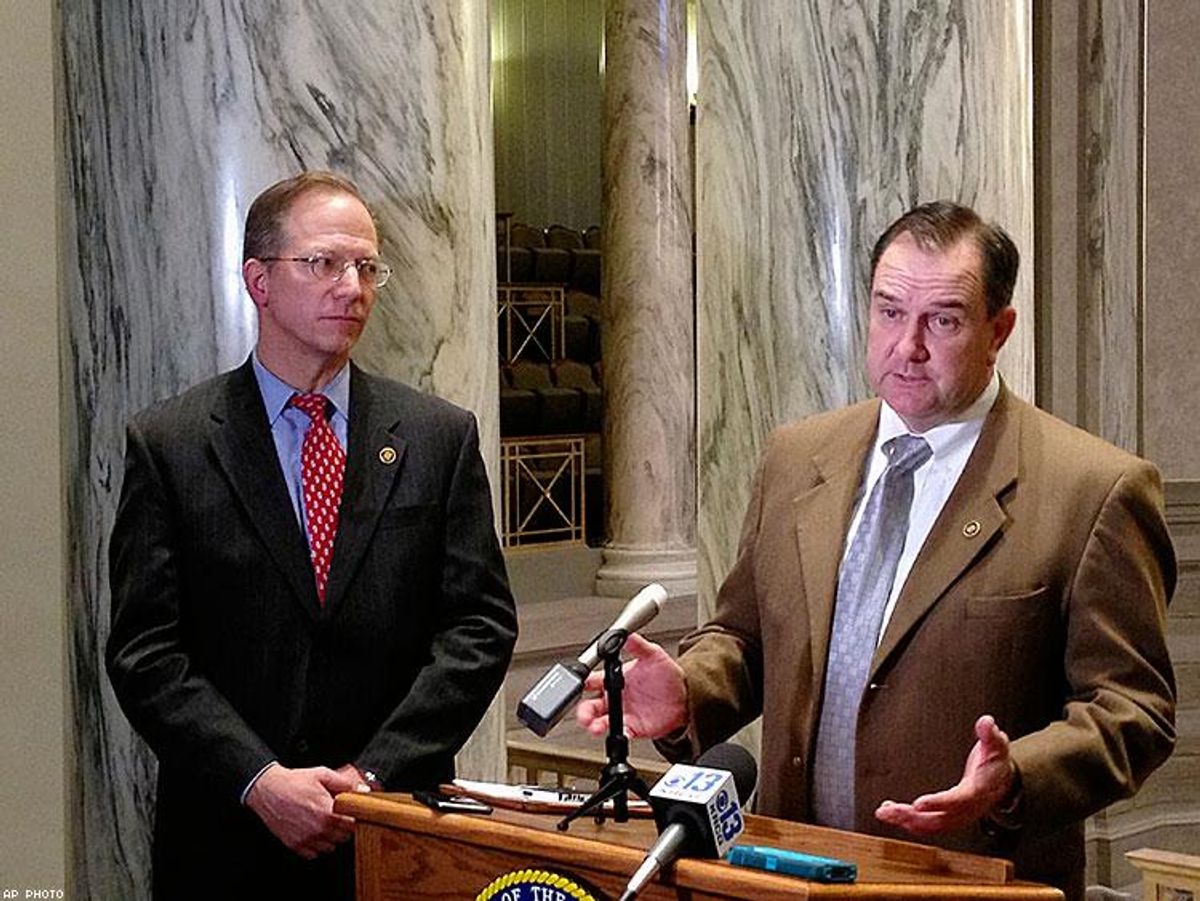A 39-hour filibuster in Missouri ended Wednesday morning, and Republicans in the state senate voted to pass an antigay constitutional amendment that claims to defend "religious freedom."
The marathon discussion began around 4 p.m. Monday, according to the St. Louis Post-Dispatch, which notes that the longest filibuster on record had been 38 hours long, over six days, about abortion in 1999.
The bill, known as Senate Joint Resolution 39, asks Missouri voters to amend the state constitution to protect "certain religious organizations and individuals from being penalized by the state because of their sincere religious beliefs or practices concerning marriage between two persons of the same sex." It passed 21-11 after Republican lawmakers broke the filibuster, reports NBC News.
Republican sponsors of the legislation contend that it and other so-called religious freedom laws introduced around the country are not discriminatory but necessary to protect the free expression of those who oppose marriage equality.
"We are fighting for fairness and the right for people to freely live out their faith while not infringing on the rights of others," Republican Sen. Bob Onder said in a statement issued Tuesday. "This is not about discrimination; it's about liberty."
The amendment must be voted on by the GOP-controlled state Senate one more time before it makes it to the Missouri House, reports NBC News. If it makes it through the Republican-led House, then Missouri voters would consider it in either the August primary or the November general election, reportsNBC News.
The democratic front-runner, Hillary Clinton, who won the Mississippi primary on Tuedsay but lost the Michigan primary to Bernie Sanders, had tweeted her support to the Democrats filibustering the bill in Missouri:
Vermont Sen, Bernie Sanders also tweeted support to his followers on Tuesday:
Jeffrey Mittman, executive director of ACLU of Missouri, called it an "outrage" that Republicans had "shut down debate." He said the legislation "would enshrine discrimination in our state constitution" and means LGBT people could be turned away by adoption and foster care agencies, or at homeless shelters. And activists say businesses could refuse service to LGBT people by citing their religious beliefs.
"This amendment raises serious constitutional concerns because it singles out same-sex couples for discrimination," said Mittman in a statement. "The state cannot constitutionally prefer one set of religious beliefs (here, those opposed to marriage for same-sex couples) over all other beliefs."












































































